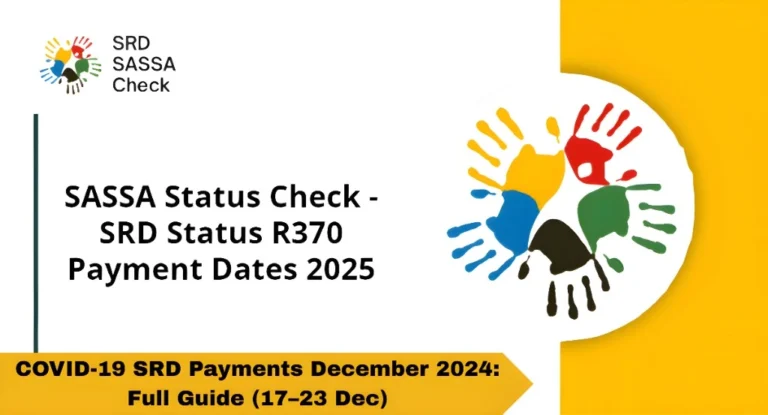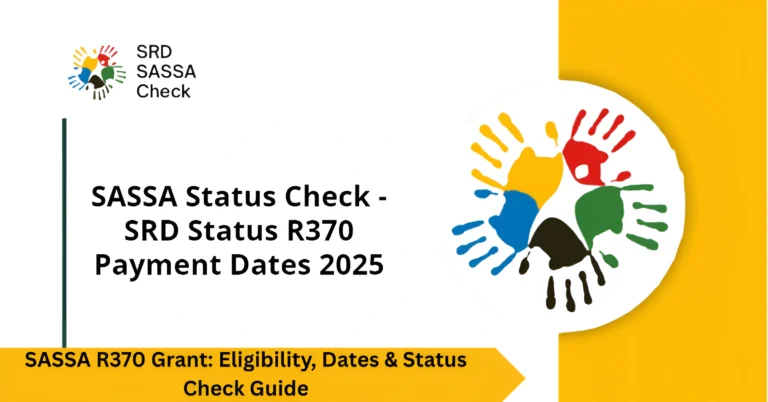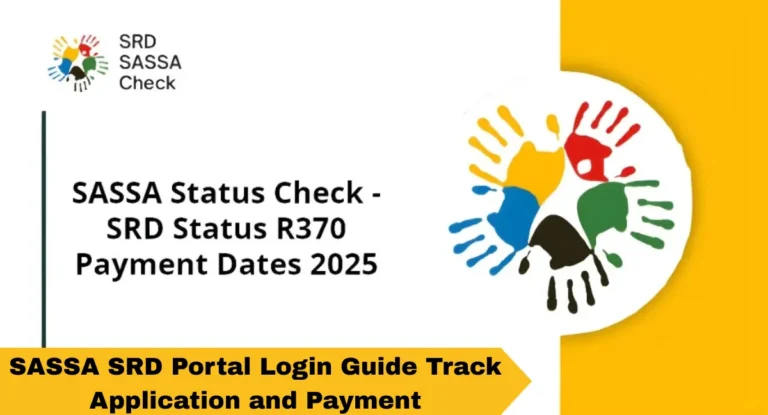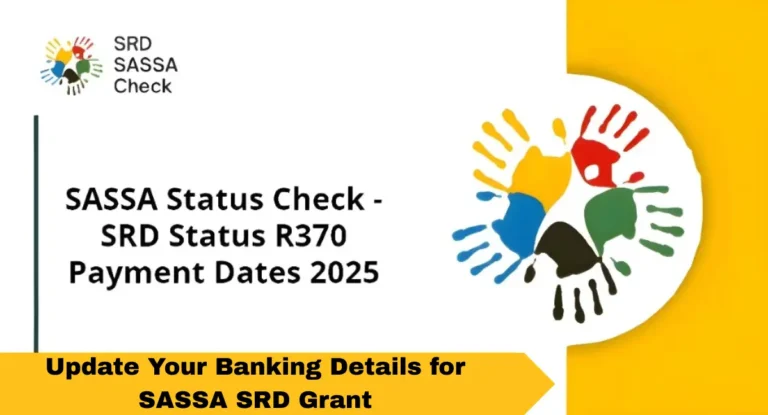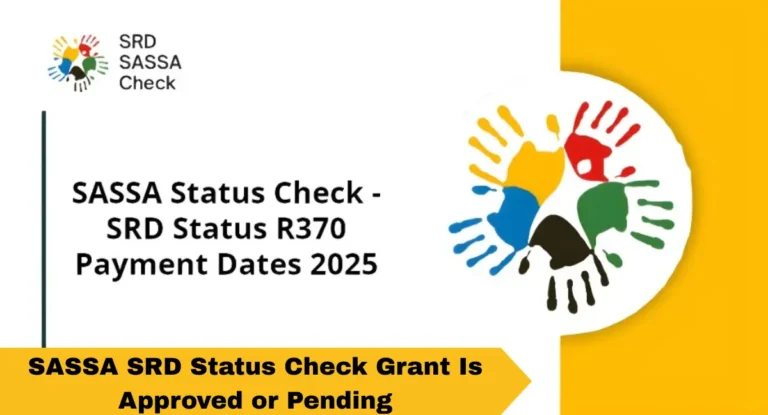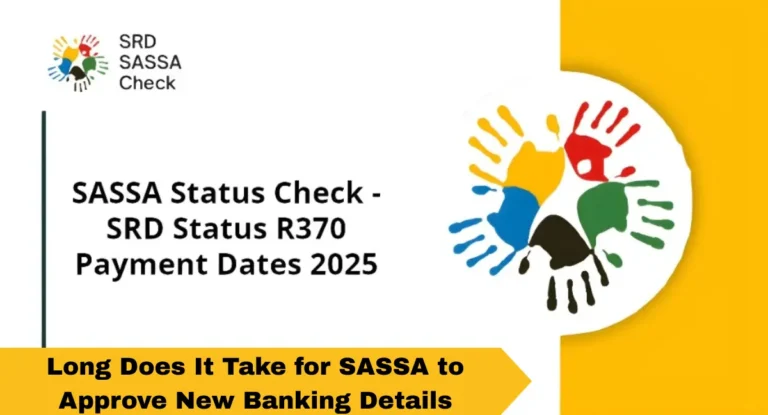Impact of SASSA SRD R370 Grants on South Africa’s Economy
In South Africa, the Social Relief of Distress (SRD) R370 grant has become a critical lifeline for many individuals facing financial hardship. Initially introduced during the COVID-19 pandemic, this grant continues to play a significant role in supporting vulnerable communities.
For beneficiaries, regularly doing a sassa status check ensures they stay updated on their payments. This article delves into the Impact of SASSA SRD R370 Grants on South Africa’s economy, highlighting its effects on households, local businesses, and the broader economic landscape.
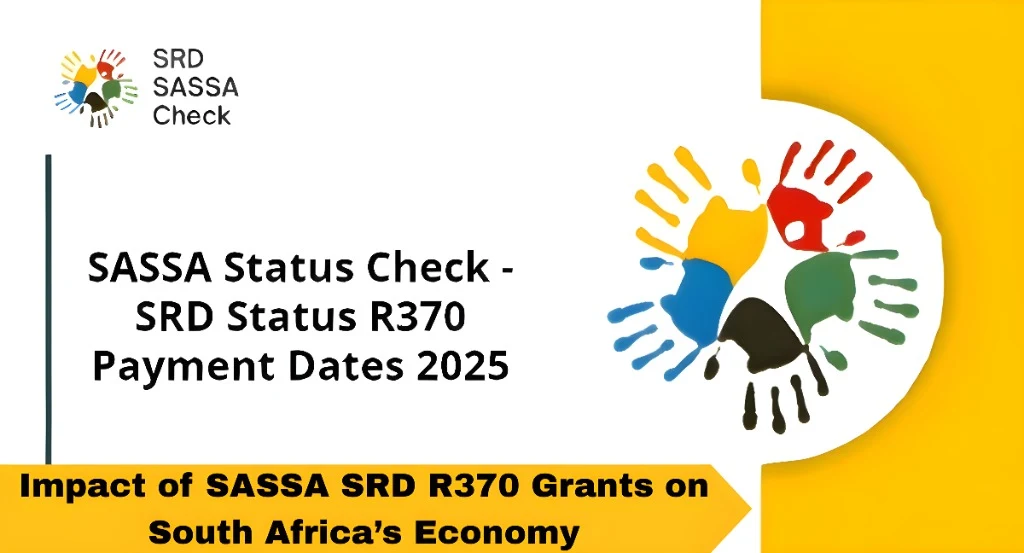
What Is the SRD R370 Grant?
The SRD R370 grant is a monthly financial assistance program provided by the South African Social Security Agency (SASSA). It aims to support unemployed individuals who do not receive any other form of income or social grant. Originally set at R350, the grant amount was increased to R370 to better align with the rising cost of living, and many beneficiaries even explore options like the sassa-srd-grant-for-emergency-medical-bills when facing urgent healthcare expenses.
Key Features
Eligibility:
South African citizens, refugees, asylum seekers, and special permit holders aged 18 to 59.
Income Threshold:
Applicants must have no source of income and not receive any other social grants.
Application Process:
Applications are submitted online through the official SASSA website or via WhatsApp.
Payment Method:
Funds are disbursed directly into beneficiaries’ bank accounts or through other specified channels.
Economic Impact on Households
For many South African households, the SRD R370 grant represents a crucial source of income, particularly in areas with high unemployment rates. The Impact of SASSA SRD R370 Grants is evident in how it helps families cover basic needs while reducing the strain caused by job scarcity.
Positive Effects:
The grant enables recipients to purchase essential food items, reducing the risk of hunger and malnutrition.
Regular financial support helps families manage daily expenses, contributing to overall household stability.
Even a modest amount like R370 can significantly impact low-income households, allowing for better financial planning and reduced stress.
Challenges:
Limited Coverage:
While beneficial, the grant does not reach all individuals in need due to stringent eligibility criteria.
Administrative Hurdles:
Some applicants face difficulties with the online application process, especially in rural areas with limited internet access.
Support for Local Businesses
The SRD R370 grant also has a notable impact on local economies, particularly in rural and township areas.
Economic Stimulus:
Beneficiaries often spend their grants on essential goods and services, boosting sales for local retailers.
Small businesses, such as spaza shops and street vendors, experience increased patronage, aiding their financial sustainability
Some individuals use the grant as seed capital to start small businesses, fostering entrepreneurship within communities.
Considerations:
Supply Chain Constraints:
The increased demand can strain local suppliers, leading to potential shortages of goods.
Economic Dependence:
Over-reliance on the grant without concurrent economic development can hinder long-term growth prospects.
Social and Psychological Impact of the SRD Grant
The SRD R370 grant extends its impact beyond just economic support; it also affects the social and psychological well-being of beneficiaries.
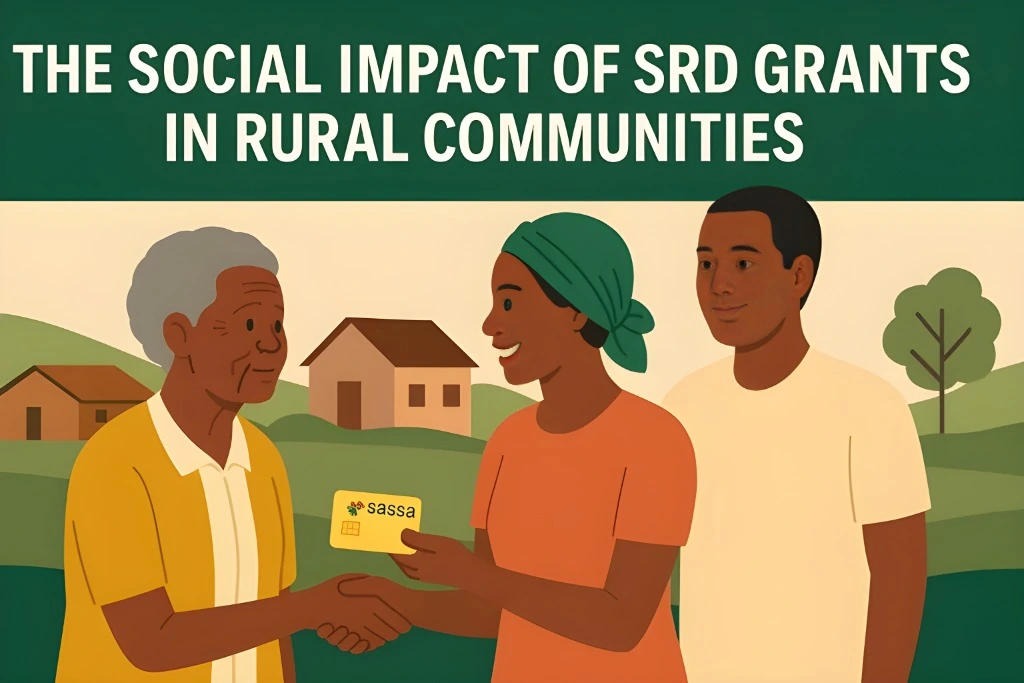
Benefits:
Psychological Relief:
For recipients, having a steady income, even a small one, provides a sense of financial security and reduces stress.
Social Inclusion:
The grant fosters a sense of community and belonging, especially among disadvantaged groups who may otherwise feel marginalized.
Concerns:
Impact on Government Finances
The distribution of the SRD R370 grant has significant financial implications for the South African government.
Positive Impact:
Challenges:
Budget Strain:
The ongoing payment of the SRD grants contributes to the fiscal burden on the South African government, leading to debates about the sustainability of the program.
Need for Sustainable Financing:
The government may need to explore additional revenue sources or adjust tax policies to maintain the grant without overstretching public finances.
Broader Economic Implications
Beyond individual households and local businesses, the SRD R370 grant influences the national economy in several ways.
Positive Contributions:
By providing financial support to the unemployed, the grant helps lift many individuals above the poverty line.
The consistent flow of funds helps stabilize consumer demand, contributing to economic resilience.
The grant fosters a sense of social solidarity, as it demonstrates the government’s commitment to supporting its citizens during challenging times.
Potential Drawbacks:
Future Outlook
The future of the SRD R370 grant remains a topic of ongoing discussion.
Potential Developments:
There are calls to expand the grant to include more individuals facing economic hardship.
Some advocate for integrating the SRD grant into a more comprehensive social welfare system.
Continuous assessment of the grant’s effectiveness and efficiency is essential to ensure it meets its objectives.
FAQs
Final words
The SRD R370 grant plays a pivotal role in supporting South Africans during times of economic distress. While it offers significant benefits in terms of household stability and local economic support, it also presents challenges that require ongoing attention and management.
As South Africa continues to navigate its economic landscape, the SRD R370 grant remains a crucial component of its social safety net, reflecting the nation’s commitment to supporting its most vulnerable citizens.

